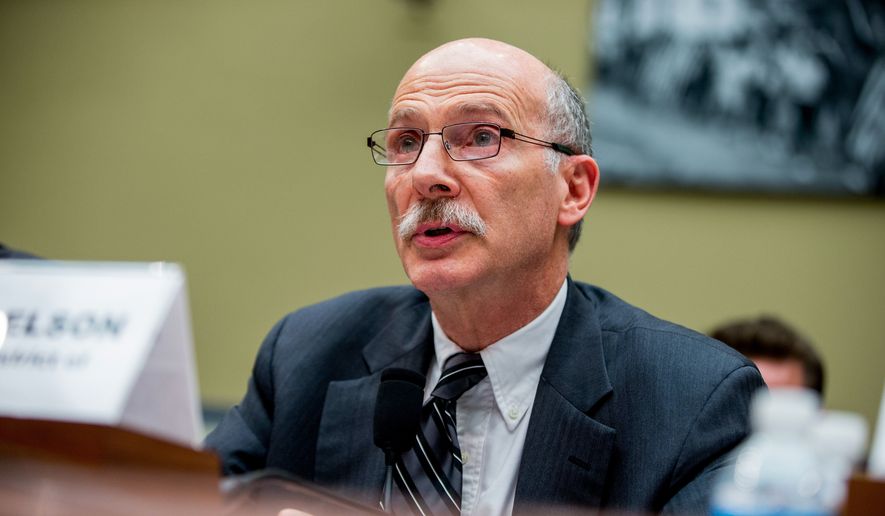The D.C. Council conducted a hearing Thursday on a proposal to reduce truancy penalties and clarify how parents can appeal failing grades due to unexplained absences.
But council members and city residents argued that the D.C. Public Schools system submitted the proposal without enough public input.
“While I am happy with the results that have come from these changes, I must voice my concern about the failure of the executive [Mayor Muriel Bowser] to follow protocol and process,” said Councilmember David Grosso, at-large independent and chairman of the Education Committee.
Mr. Grosso was referring to the fact that officials submitted the proposal document to the council before DCPS held public forums on it at high schools this summer.
Under the proposal, students who have more than five unexcused absences no longer would receive an automatic grade reduction. Also, parents would be notified if their children are absent 10 times with no excuse and again at 15 absences. Students would be failed automatically at 30 absences.
In addition, the proposal would clarify the appeal process for parents to challenge unexplained absences, and no longer would allow members of Parent-Teacher Organizations or student groups to sit on the appeal board.
The lack of public input on the proposal was highlighted when Nakisha Winston, a parent in Ward 6, expressed doubt that the school system could follow through on the proposal’s main promise to inform parents before punishing truant kids.
“DCPS hasn’t really gotten down giving these notices to parents,” Ms. Winston, a special education attorney, testified at the hearing.
Ms. Winston told of parents living in homeless shelters who do not receive notices when their children are absent, and how information about credit recovery eligibility often is not included in notices about several absences. She also recalled how her daughter has been mistakenly marked absent several times when she was on a field trip or with a guidance counselor.
Amy Maisterra, the newly-appointed deputy chancellor of innovation and system improvement, said that DCPS would explore Ms. Winston’s suggestion to send notices by certified mail, and is looking to improve controls on absentee data entry in city schools.
Thursday’s sparsely attended hearing was a joint roundtable between the Committee on the Whole, led by council Chairman Phil Mendelson, at-large Democrat; and Education Committee, led by Mr. Grosso. Councilmember Trayon White, Ward 8 Democrat, also attended.
The hearing was held less than a week after DCPS closed public comment on the proposal, with Ms. Maisterra telling the council that officials had received more than 200 comments.
Councilmember Robert C. White Jr., at-large Democrat, asked her if the comments could have been included before the draft proposal was sent to the council. Ms. Maisterra said DCPS could not include the comments due to its “timeline,” and was unable to say whether any changes would result from the comments.
Mr. Grosso said that making changes from the comments would have been a good way to help rebuild public trust in the school system after its recent series of scandals involving inflated graduation rates, unauthorized school transfers and residency fraud.
Any changes DCPS makes now would take two months or more to go into effect: Officials would need to revise and resubmit the proposal to the mayor, who would transmit the document to the council, which would be required to hold a hearing and then wait 45 days to pass it.
“[From] major issues like the search for a new chancellor to smaller matters like clarifying regulations, the executive continues to show disregard for the law and process,” Mr. Grosso said in his opening remarks. “Consequently, council’s patience for this disregard is growing thin.”
Earlier this month, Miss Bowser issued a veto — her first — against emergency legislation that would have allowed high school seniors to graduate if they missed more than six weeks of school but met the other graduation requirements. The council had passed the legislation in a 12-1 vote.
• Julia Airey can be reached at jairey@washingtontimes.com.




Please read our comment policy before commenting.